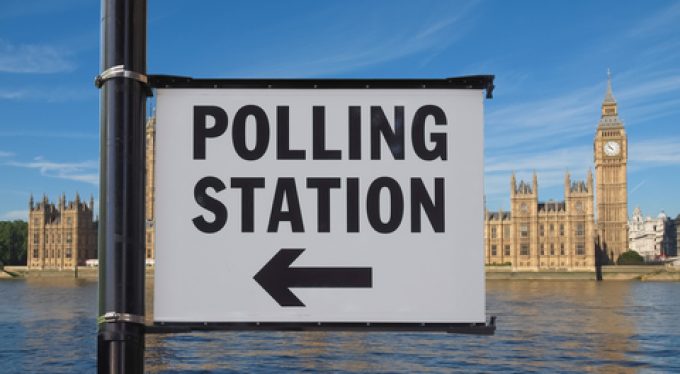The Loadstar unboxed 2024
As 2024 draws to a close, it’s time to reflect on the highlights that defined ...
FDX: ABOUT USPS PRIVATISATIONFDX: CCO VIEWFDX: LOWER GUIDANCE FDX: DISRUPTING AIR FREIGHTFDX: FOCUS ON KEY VERTICALFDX: LTL OUTLOOKGXO: NEW LOW LINE: NEW LOW FDX: INDUSTRIAL WOESFDX: HEALTH CHECKFDX: TRADING UPDATEWMT: GREEN WOESFDX: FREIGHT BREAK-UPFDX: WAITING FOR THE SPINHON: BREAK-UP ALLUREDSV: BREACHING SUPPORTVW: BOLT-ON DEALAMZN: TOP PICK
FDX: ABOUT USPS PRIVATISATIONFDX: CCO VIEWFDX: LOWER GUIDANCE FDX: DISRUPTING AIR FREIGHTFDX: FOCUS ON KEY VERTICALFDX: LTL OUTLOOKGXO: NEW LOW LINE: NEW LOW FDX: INDUSTRIAL WOESFDX: HEALTH CHECKFDX: TRADING UPDATEWMT: GREEN WOESFDX: FREIGHT BREAK-UPFDX: WAITING FOR THE SPINHON: BREAK-UP ALLUREDSV: BREACHING SUPPORTVW: BOLT-ON DEALAMZN: TOP PICK

People across the UK are heading to the polling booths today, with the likelihood of waking up tomorrow to a new government – and supply chain stakeholders are among those who have highlighted a ‘shopping list’ of priorities.
While many of the major supply chain disruptions faced today are outside the remit of what a UK government can fix, there is some ‘low-hanging fruit’ that a new team could enact to help importers, exporters and SME businesses.
Indeed, Nichola Mallon, head of trade and devolved policy at Logistics UK, told The Loadstar Podcast: “From day one, the next government needs to accelerate its efforts to address some of the friction within the UK-EU trade and cooperation agreement.
“Critically, it needs to look to secure a better deal for UK businesses, and that would involve tackling divergence. It would also look at greater harmonisation on sanitary and phytosanitary checks – that would be critical.”
The Loadstar previously reported that these and other border checks introduced post-Brexit have been overly bureaucratic and led to rising costs that threaten to cripple SMEs in the fresh produce and plant sectors.
Listen to this clip from The Loadstar Podcast to hear Mike King speaking to Dionne Redpath, group COO at Europa Worldwide Group, about how Brexit changed the UK’s role in pan-Europe distribution strategies:
Richard Ballantyne, CEO of the British Ports Association, said: “Absolutely we’re looking at those relationships with the EU. Brexit is certainly not done yet, but we want to learn the lessons from that and look at how we can encourage the new single trade window to work for ports, traders and importers and exporters.”
He noted that the Labour Party, which forecasters predict could win a strong majority in today’s elections, has already identified examining a closer relationship with the EU in areas such as SPS controls.
“This is something we’d be interested in, although there would be consequences for ports which have invested in infrastructure. But we’ll be certainly interested in talking about that with government,” he said.
Mr Ballantyne also told The Loadstar Podcast that also among the BPA’s priorities to highlight to the new government were net-zero sustainability, connectivity and the offshore energy transition.
“We want a government that is prepared to invest… we like governments that spend on big infrastructure projects… because that drives a lot of port activity, and it drives a lot of investment in the country.”
He noted that Labour had pledged £1.8bn ($2.3bn) to upgrade ports and, while details have yet to be confirmed, the focus is likely to be on servicing and growing offshore wind.
Ms Mallon said: “In the area of ocean freight, we would like to see greater coordination with other national competition authorities to monitor the shipping market, but also ensure that there’s pricing transparency to the benefit of all involved.”
She exemplified the “Five Eyes Initiative” between the UK, US, Canada, Australia and New Zealand, which includes coordination among competition agencies.
“We think there’s important work that could be done in that space,” she explained.
Listen to this clip from The Loadstar Podcast to hear Mike King speaking to Nichola Mallon about what the next UK government can do to help UK businesses engaged in international trade:
Logistics UK is also lobbying for Whitehall to “put logistics at the heart of the government” and appoint a “minister for supply chain and logistics”.
Mr Ballantyne agreed and added that a supply chain minister should “have a pan-government role to access not just the Department for Transport, but all elements, including the Treasury, so that we can get some high-level influence and decisions.”
“Someone that can work across governments, that can recognise and understand the critical role of logistics in driving innovation and productivity, but also securing our critical supply chains and building resilience into them,” added Ms Mallon.
Comment on this article